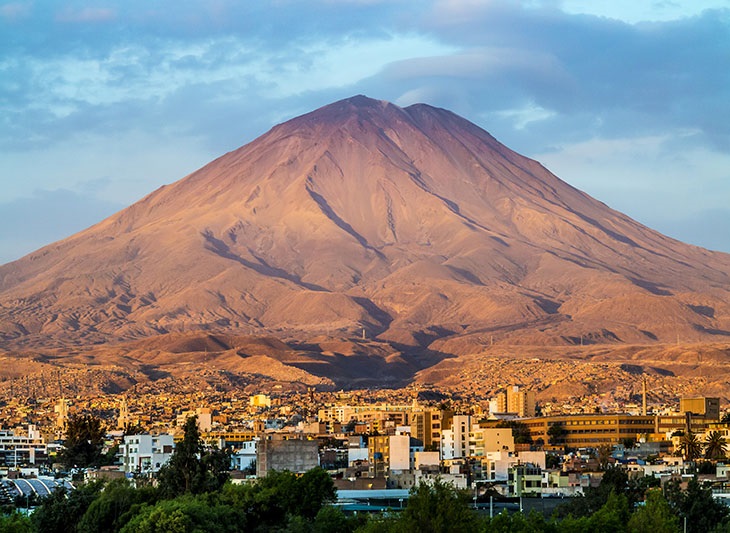Trade Ministers, Officials in Arequipa to Modernize Globalization

The forces of globalization that have lifted hundreds of millions out of poverty and powered growth across the Asia-Pacific for a quarter century are being increasingly tested by changing economic and social conditions. It is a challenge that is driving policymakers to modernize the underpinnings of economic integration and trade for a new era.
Trade Ministers from the 21 APEC member economies will convene in Arequipa, Peru’s second largest city, on 17-18 May to launch collaborative actions for taking this ambitious effort forward. They will do so against the backdrop of global uncertainty that is weighing on trade flows but which has not altered the region’s fundamental position as an engine of growth and prosperity.
“The period of transition unfolding in the world economy and demographics is giving rise to questions about the future of globalization,” explained Dr Alan Bollard, Executive Director of the APEC Secretariat. “The shifting landscape does not undermine globalization’s enduring relevance but rather speaks to the need to update the approaches we take.”
“Swings in global demand are impacting trade yet the fact remains that it is still the lifeblood of economies and improvements in living standards in the Asia-Pacific,” Dr Bollard noted. “Actions that address emerging structural impediments to trade and quality growth, and position more people to take advantage of new economic opportunities are at the top of the regional agenda.”
The 2016 APEC Ministers Responsible for Trade Meeting will target enhanced job creation and living standards via next generation trade and economic policy. The proceedings will build on a cluster of APEC technical working group exchanges here over the next week and inputs from APEC Senior Officials on 14-15 May.
Priorities include advancing regional economic integration and the efficient, secure movement of people, goods, services, data and capital across borders; small business development and participation in regional supply chains; cross-border education and training; and food security, sustainable management of oceans and fisheries, and green growth.
“There is a shared belief in APEC in the potential for closer people and markets to support a new phase of productivity and higher living standards while fostering sustainability in viable ways,” concluded Dr Bollard. “Building capacity for the region’s diverse economies to increase openness and interconnectivity among them can go a long way to realizing this vision.”
Trade Ministers will consider recommendations from the APEC Business Advisory Council and APEC’s Official Observers—the Association of Southeast Asian Nations, Pacific Economic Cooperation Council and Pacific Island Forum.
A presentation on the state of global trade from World Trade Organization Director General Roberto Azevêdo and the unveiling of the APEC Policy Support Unit’s latest Regional Trends Analysis report will also help to guide Trade Ministers’ discussions.
# # #
For additional information, or to arrange possible media interviews with APEC officials, please contact:
David Hendrickson (in Arequipa) +65 9137 3886 at [email protected]
Michael Chapnick +65 9647 4847 at [email protected]
More on APEC meetings, events, projects and publications can be found on www.apec.org. You can also follow APEC on Twitter and join us on Facebook and LinkedIn.

